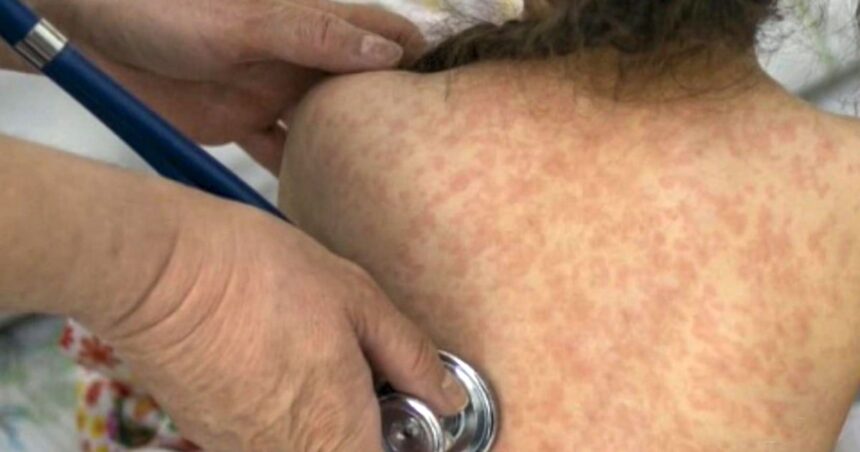As Alberta grapples with a growing measles outbreak, health professionals across Canada are sounding the alarm about what many are calling a preventable public health crisis. With confirmed cases now reaching double digits in the province, the situation has escalated from isolated incidents to what experts describe as an emerging epidemic.
“There is no doubt we’re facing an epidemic,” says Dr. Maya Richardson, infectious disease specialist at the University of Alberta Hospital. “What makes this particularly troubling is that measles was essentially eliminated in Canada through vaccination programs, but declining immunization rates have opened the door for its return.”
The highly contagious viral infection has particularly affected communities with lower vaccination rates, spreading rapidly through schools and daycare centers. Alberta Health Services reports that approximately 85% of the cases involve unvaccinated individuals, with the remainder occurring in people with incomplete vaccination histories.
The outbreak has prompted emergency response measures across Alberta’s healthcare system, including pop-up vaccination clinics and enhanced screening protocols in hospitals and clinics. Health officials are particularly concerned about potential exposure in waiting rooms and other public spaces, as measles can remain airborne for up to two hours after an infected person leaves the area.
“We’re seeing complications that remind us why measles is not just a simple childhood illness,” explains Dr. Jonathan Wong, pediatrician at Edmonton’s Stollery Children’s Hospital. “Several children have been hospitalized with pneumonia, and we’ve had two cases of encephalitis, which is inflammation of the brain that can lead to permanent damage.”
The outbreak has sparked renewed debate about vaccination policies across Canadian provinces. While some advocate for mandatory vaccination for school attendance, others argue for strengthened public education campaigns to combat vaccine hesitancy. Health Minister Jason Copping has indicated the province is reviewing all options while focusing immediate efforts on containment.
Public health data reveals a troubling trend: MMR (measles, mumps, rubella) vaccination rates have declined by nearly 7% over the past five years in Alberta, creating vulnerability pockets throughout the province. This mirrors similar trends across North America and parts of Europe, where measles outbreaks have resurged after decades of relative containment.
“What we’re witnessing isn’t isolated to Alberta,” notes Dr. Eliza Montgomery, epidemiologist with the Public Health Agency of Canada. “This is part of a global pattern where misinformation about vaccines has led to hesitancy, and subsequently, to the resurgence of preventable diseases. The Alberta outbreak serves as a warning for other provinces.”
Economic impacts are also mounting. The outbreak has led to significant absenteeism in schools and workplaces, with quarantine requirements keeping exposed individuals home for up to 21 days. A preliminary analysis by economists at the University of Calgary estimates the outbreak could cost the provincial economy upwards of $12 million in lost productivity and healthcare expenditures if it continues to spread at current rates.
Health authorities emphasize that the MMR vaccine is both safe and highly effective, with two doses providing approximately 97% protection against infection. Emergency vaccination efforts are now targeting communities with low coverage, particularly focusing on children and young adults who may have missed scheduled vaccinations.
As spring break approaches, officials worry about potential spread to other provinces as families travel. Health departments across Canada have issued advisories urging travelers to confirm their vaccination status before departure.
As the situation unfolds, the question remains: will this outbreak serve as the catalyst needed to address declining vaccination rates across Canada, or is this just the beginning of a new era of vaccine-preventable disease resurgence?
























